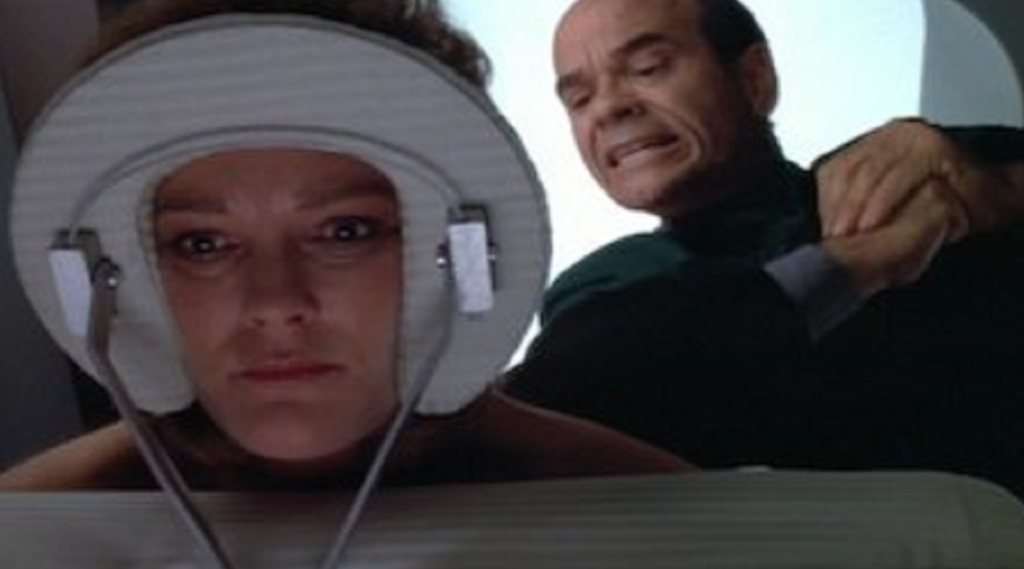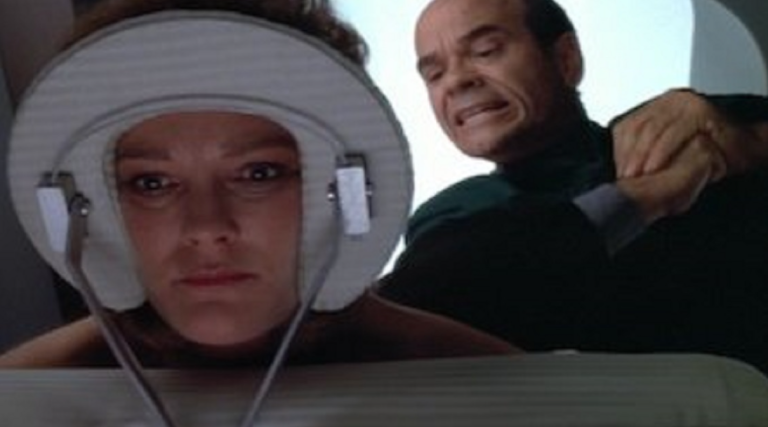
Was Voyager’s Crew Headed for a Mental Breakdown?
Despite the ever-optimistic nature of Neelix and Captain Janeway’s heartwarming speeches about unity, a recent discussion on Reddit suggests that the USS Voyager’s crew was likely teetering on the edge of a psychological precipice as early as the show’s second season. Was life aboard Voyager potentially more mentally taxing than we’d previously considered?
The core of the argument posed by Reddit user DocManhattan78 is that the everyday life of Voyager’s crewmembers would have been exceptionally challenging, even for those trained for deep space assignments. The crew had to interact with the same 140-odd individuals for years within the confined space of the starship. Senior staff were the ones mostly privileged to leave the ship and interact with other races, leaving the rest of the crew to face a monotonous and claustrophobic existence.
Shore leave was rare and opportunities to change job roles were limited. The routine was disrupted only by the frequent brushes with death when hostile alien races attacked them. The recreational options were limited to the holodeck and occasional concerts. The crew also had to deal with the post-traumatic stress disorder (PTSD) resulting from numerous battles, especially with the Kazon and the Vidians.
Moreover, the crew was constantly dealing with the haunting realization that their loved ones believed them to be dead and were moving on without them. This could have led to a torturous mental state, exacerbating the stress and anxiety already present.
Would this prolonged exposure to stress, isolation, and danger have pushed even the most psychologically resilient crew to their limits? According to DocManhattan78, the crew would have been on the verge of a Lord of the Flies scenario after about a year and a half.
However, some fans argue that the benefits of the holodeck, the occasional shore leave, and the strong camaraderie among the crew could have mitigated these stresses to an extent. While the holodeck provided virtual relief from the confines of the ship, it’s worth noting that it’s not a replacement for genuine interaction with diverse life forms and environments.
The discussion raises interesting questions about the psychological implications of long-term space travel, not just in the context of Star Trek, but also in real-world space exploration. It highlights how our favorite shows often only scratch the surface of the real challenges faced by individuals in these extraordinary circumstances.
As our exploration of the final frontier continues, both in fiction and reality, understanding the psychological impact on those who journey into the unknown will be crucial. In the case of the crew of Voyager, their journey was not just one of miles, but of the mind as well.


